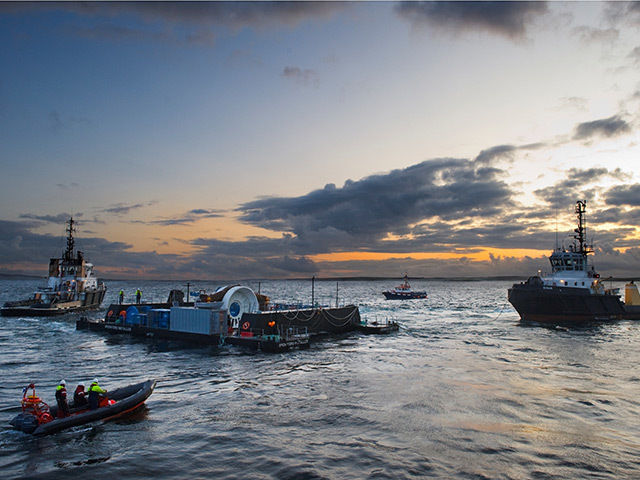
The FORESEA programme has approved six offshore renewable energy technology projects for support, in its third call for applications.
The awards highlight the leading role Europe plays in ocean energy RD&I globally, with continued strong demand for testing in European ocean energy centres of excellence from both EU and non-EU developers.
FORESEA’s user selection board awarded a ‘Recommendation for Support” to demonstration projects led by the following technology developers to test at the indicated test centre:
* Blackfish (EMEC)
* Bombora (EMEC)
* IDEOL (SEM REV)
* Interdrones (SEM REV)
* Kornwerderzand BV (DMEC)
* Scotrenewables (EMEC)
Final confirmation of support will be granted to developers upon contract with the relevant test centre.
The awards will provide a real boost to technology developers by allowing them to test their technologies at sea. It will also help them attract further investment, and move along the path to industrialisation.
The announcement was made by Paul Wheelhouse, Scottish Minister for Business, Innovation and Energy at the Ocean Energy Europe 2017 Conference & Exhibition in Nantes today, who said:
“I warmly welcome the news that Scotland’s flagship European Marine Energy Centre will be used to provide world class testing facilities for three of the six projects from the FORESEA programme. It is further evidence of the recognised excellence of EMEC as a global player in the research and development and testing of ocean energy devices, and of Scotland’s status as a major player in the European renewable energy sector.
“Moreover it also illustrates very clearly the continued importance of EU funding in helping to bring low carbon technologies to market and to fostering research collaboration – something we are determined to continue, despite the outcome of the EU referendum in which 62% of Scots voted to stay in the EU”.
Rémi Gruet, CEO of Ocean Energy Europe said:“Europe is the global centre for ocean energy RD&I and today’s FORESEA awards are new evidence of that. Demand for testing remains high, as concepts and machines require validation before getting to market. Significantly, non-EU technologies are coming to Europe to test, recognising the experience and know-how from our test centres.
“With continued public support for RD&I, Europe can capitalise on this technological advantage and create a new manufacturing sector based on indigenous, renewable energy.
Recommended for you
